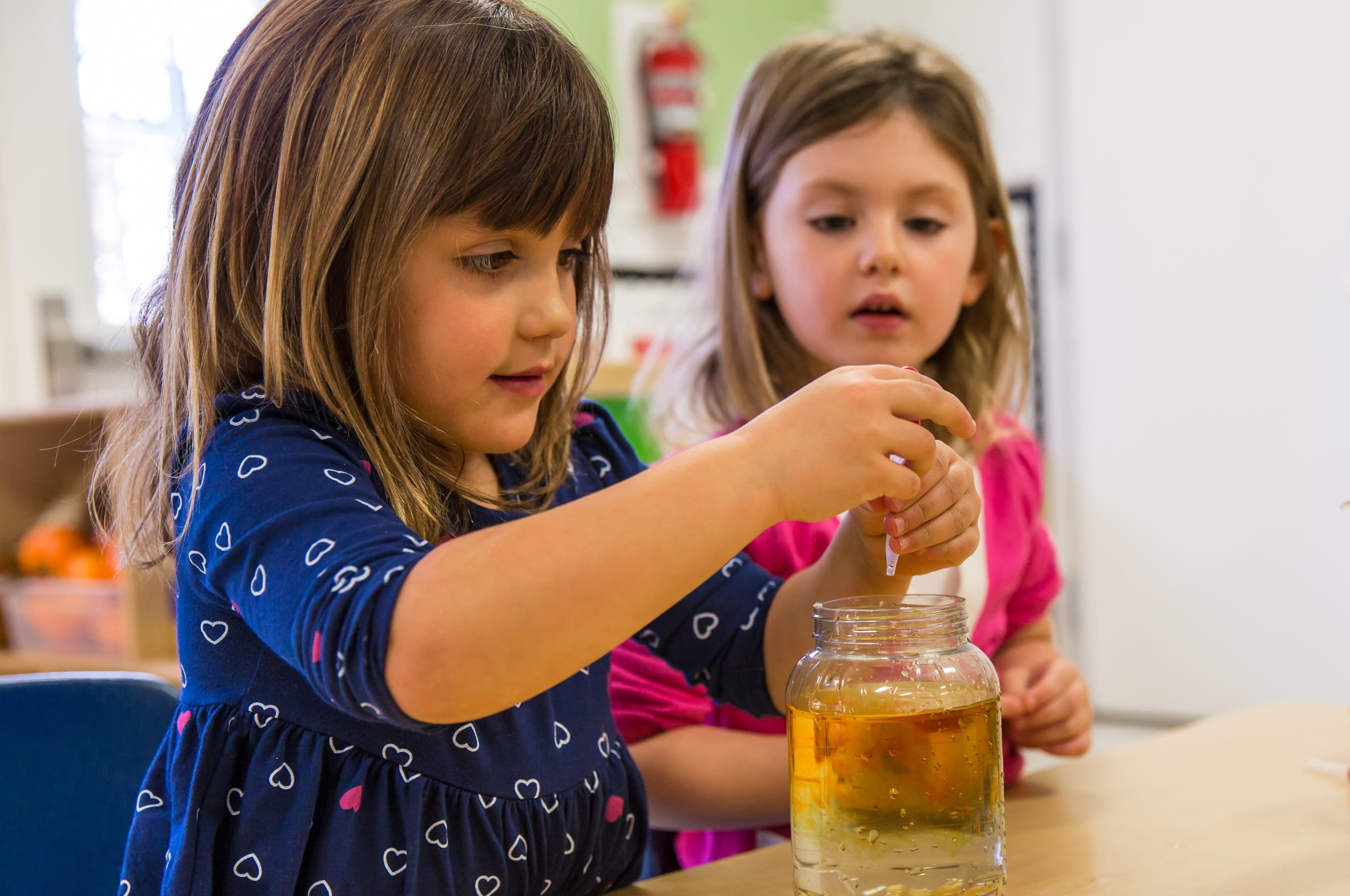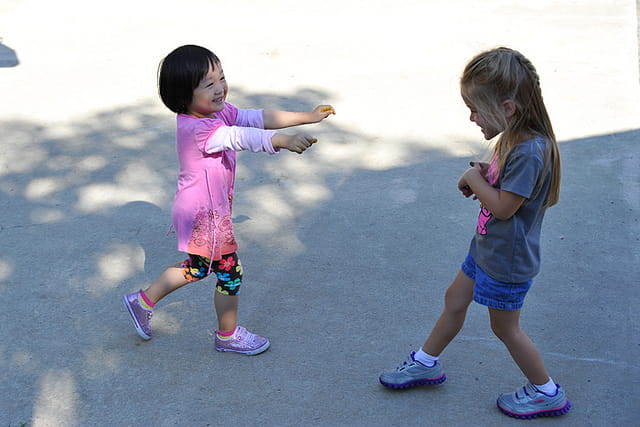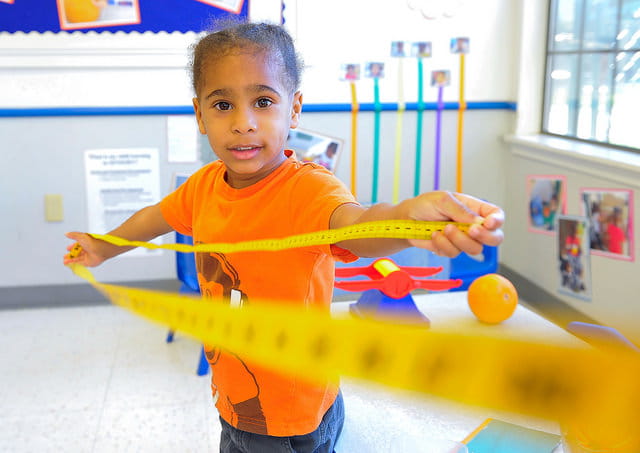3 Fun & Easy Science Activities for Toddlers

Can three-year-olds really begin to understand scientific concepts like states of matter, force, and motion?
“Absolutely,” says Meg Davis with KinderCare’s Education team. “Children are young scientists. They learn about the world around them through their senses.” This natural curiosity is the basis for KinderCare’s program for three-year-olds called Spectacular Science—and it’s chock full of fun science activities for highly curious kids.
The two-week program presents basic science concepts in ways three-year-olds can engage with and understand. “The key,” Davis says, “is to provide children with plenty of hands-on opportunities to explore science in a playful way.”
For example, while learning about states of matter (solids, liquids, and gases), our children will pretend to be balloons filled with air that float up into the sky…and then fall back to the ground. That kind of physicality underscores science learning for toddlers by bringing complex concepts to life.
Can’t wait to nurture your own kid’s scientific curiosity? Bring a little bit of Spectacular Science home with these three ideas inspired by our curriculum.
1. Science in Creative Expression: Shadow Art for Kids
Materials needed: Sidewalk chalk
Scientific concepts: Light and shadows
Pick a sunny day to head outdoors with your sidewalk chalk. Find a hard, flat surface, and search for shadows to trace. Encourage your child to pick a shadow and trace its outline with the chalk. Create your own shadows and trace each other’s outlines.
Ask open-ended questions: What does a shadow look like? What shape is it? How is a shadow made? Extra credit: Go outdoors later to see how far the shadow moved!

2. Science in Motion: Freeze Tag
Scientific concepts: Liquids and solids
Moving around and acting out ideas and concepts helps children understand them more clearly, and this well-known child’s game incorporates a science lesson, too: Freeze Tag. (Helpful tip: Freeze Tag works best with a few friends.)
Explain the simple rules: One child is It and tries to tag the other children. If a child is tagged, the child “freezes” in a fun (or funny) position. If another child tags the “frozen” child, they become “unfrozen” and can begin running again. After several minutes, ask another child to be It.
During breaks, ask: What else freezes?…That’s right, water. When does water freeze? What is water like when it unfreezes?…What is another word for "unfreeze"?

3. Science in Everyday Conversation: Ask Questions
Scientific concepts: Critical thinking, hypothesizing, and science vocabulary
Science learning at any age involves curiosity, exploration, and discovery. Families can support science learning in everyday conversations by asking “how” and “what” questions that prompt children to think critically and explain their reasoning.
Ask questions like, What would happen if…? or How do you know that…? Then sharpen children’s skills by inviting them to test their ideas. For example, if you are exploring what sinks or floats, ask, Will the rubber duckie float? Let’s try it…




.jpg?la=en&h=800&w=1200&hash=799F5BD6E84A71FB0D1C8E657FE7F226)
